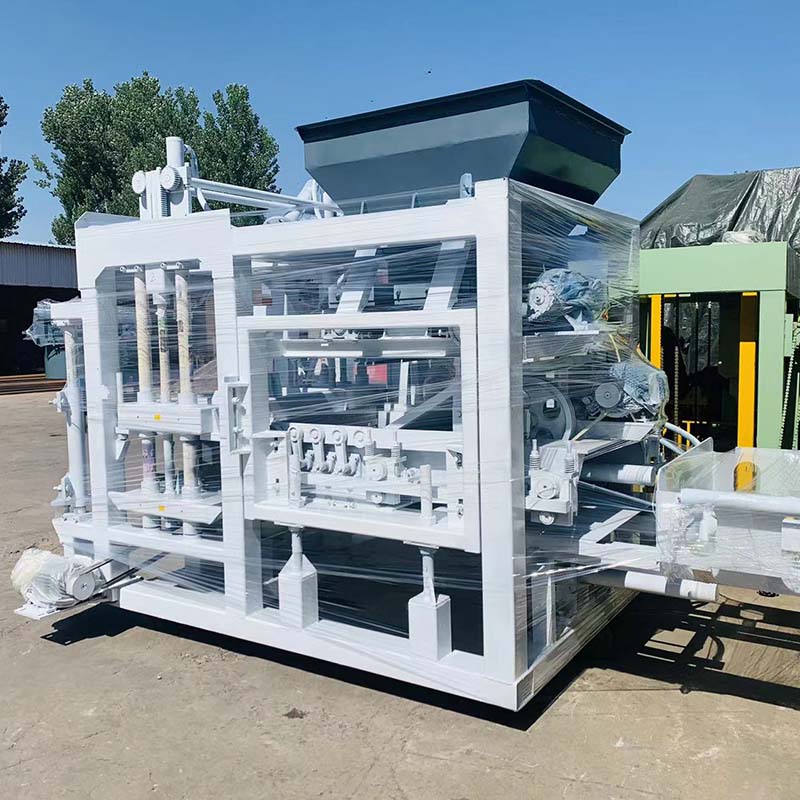
In the rapidly evolving landscape of manufacturing, automation has become a pivotal force in enhancing productivity, reducing costs, and increasing efficiency.
In recent years, a groundbreaking innovation has emerged that promises to revolutionize the manufacturing industry: BlockMachine.
This essay explores the significance of BlockMachine in the context of automated production, its underlying technology, the benefits it offers, and its potential impact on the future of manufacturing.
Understanding BlockMachine Technology
BlockMachine is a cutting-edge system that leverages the power of robotics, artificial intelligence, and advanced programming to create an autonomous and highly efficient manufacturing environment.
At its core, BlockMachine is a network of modular robotic units that can be configured and programmed to perform various tasks, such as assembling products, handling materials, and conducting quality control checks.
The architecture of BlockMachine is based on modularity, allowing it to be tailored to specific manufacturing needs with ease.
Each module can function independently or collaboratively with other modules, working in sync to achieve a seamless production line.
The coordination and communication between modules are facilitated by sophisticated algorithms and AI-driven controllers, ensuring that the entire system operates with utmost precision and reliability.
Advantages of BlockMachine in Manufacturing
The introduction of BlockMachine into the manufacturing landscape brings a myriad of advantages that can significantly transform production processes and enhance overall operational efficiency.
BlockMachine eliminates the bottlenecks associated with human involvement, enabling continuous and faster production cycles.
Robots work tirelessly without breaks, leading to consistent output and higher production rates.
The precision and accuracy of robots ensure that product quality remains consistently high.
BlockMachine’s AI-driven controllers can detect and address defects early in the production process, reducing waste and the need for post-production inspections.
Manufacturers can reconfigure and reprogram BlockMachine modules to accommodate changes in product designs or manufacturing requirements.
This adaptability allows companies to stay agile in response to market demands and innovations.
By taking over repetitive and hazardous tasks, BlockMachine reduces the risk of workplace injuries for human workers, creating a safer working environment.
While the initial investment in BlockMachine may be substantial, the long-term cost savings are significant.
The reduction in labor costs, increased energy efficiency, and minimized material waste contribute to improved profitability over time.
Applications of BlockMachine in Various Industries
The versatility and scalability of BlockMachine technology open up a wide range of applications across diverse industries.
The automotive industry can benefit immensely from BlockMachine’s capabilities.
From assembling intricate car parts to conducting rigorous quality checks, BlockMachine streamlines the production process and ensures consistent manufacturing standards.
BlockMachine’s precision and speed are invaluable in electronics manufacturing, where components often require delicate handling.
The system’s ability to rapidly adapt to new product iterations also aligns with the fast-paced nature of the tech industry.
In pharmaceutical manufacturing, where precision and sterility are critical, BlockMachine can automate various tasks, such as pill counting, packaging, and labeling, with minimal risk of contamination.
The consumer goods industry, encompassing products like home appliances and personal electronics, can optimize production and meet consumer demands more efficiently with BlockMachine’s automated assembly and packaging capabilities.
The Future of Manufacturing with BlockMachine
The widespread adoption of BlockMachine has the potential to reshape the manufacturing landscape in fundamental ways, paving the path for a more sustainable, efficient, and interconnected industry.
With BlockMachine’s adaptability, mass customization becomes a realistic possibility.
Manufacturers can efficiently produce personalized products at scale, catering to individual customer preferences.
By integrating BlockMachine with IoT devices, manufacturers can create a network of interconnected machines capable of real-time data exchange, allowing for predictive maintenance, supply chain optimization, and smart production scheduling.
Rather than replacing human workers, BlockMachine may foster a collaborative relationship between humans and robots.
Human workers can focus on tasks that require creativity, problem-solving, and emotional intelligence, while BlockMachine handles repetitive and labor-intensive jobs.
BlockMachine’s efficiency reduces waste and energy consumption, contributing to more sustainable manufacturing practices.
Manufacturers can minimize their environmental footprint while meeting the growing demand for eco-conscious products.
In conclusion, BlockMachine represents a groundbreaking advancement in the realm of automated production, holding immense potential to revolutionize manufacturing across industries.
Through its innovative technology, flexibility, and numerous advantages, BlockMachine promises to streamline production processes, enhance product quality, and contribute to a more sustainable and efficient future of manufacturing.
As the technology continues to evolve and gain wider adoption, it will undoubtedly shape the manufacturing landscape in profound ways, ushering in an era of unprecedented progress and productivity.
